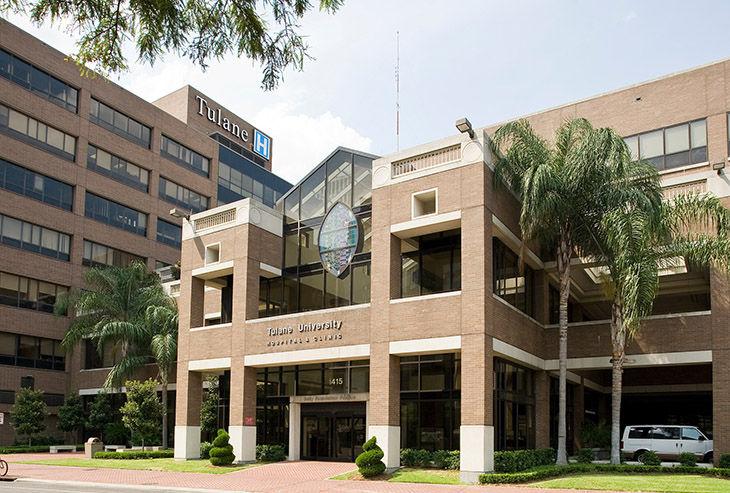Tulane Medical recognized for LGBT healthcare equality
Staff Photo
Tulane’s $150 million deal with LCMC to sell them three hospitals will proceed after court ruling.
April 13, 2016
In a field where new methods and perspectives are constantly emerging, the Tulane Medical Center has become a national leader in LGBT healthcare.
The Tulane Medical Center in downtown New Orleans received recognition from the Human Rights Campaign as a “Leader in LGBT Healthcare Equality” for the 2015-16 year. Key criteria, such as extensive staff training and accessible display of policies, earned the Tulane Medical Center the recognition, which was featured in the HRC Foundation’s Healthcare Equality Index 2016. The facilities plan to maintain the status.
“Tulane Health System’s mission is to provide world-class patient care, education and research,” said Dr. William Lunn, president and chief executive officer of Tulane Medical Center. “One of the ways we accomplish our mission is through acts of kindness to every person who enters our facilities. This equality award is a perfect example of how we are living out our mission.”
The relatively recent nature of attention to LGBT healthcare has made it a pressing topic in settings like college health centers and hospitals.
“LGBTQ health is a very emerging field,” said sophomore Caroline Scott, vice president of finance for Tulane’s Queer Student Alliance, the umbrella organization for LGBT associations on campus. “No one really knows how to deal with it yet. We’re doing a lot of work, so I hope Tulane can follow in their first steps and be a leader on that, just trying to be aware and be in communication with what other people are doing.”
Vivek Khanna, director of Contracts Management and Anesthesia at the Tulane Medical Center, participated with his staff in medical and LGBT language sensitivity trainings. Training largely took place on the Human Rights Campaign’s website in what Khanna described as a “webinar-like” format.
Key components in these trainings and in practice were necessary to qualify for the HRC recognition.
“In addition to filling out an application, the core elements are to ensure we have policies in place that are inclusive of a diverse population,” Khanna said. “We don’t discriminate based on sexual orientation, gender, race, but most specifically we address sexual orientation and gender identity.”
Beyond the “core elements,” staff in all areas at the Tulane Medical Center knew that only significant efforts would make them stand out as a leader in LGBT healthcare.
“[We] make sure we actually have policies in place, [but] we are actually enforcing those policies,” Khanna said. “[We make sure] our staff are educated about those policies, we have extended those policies to our customers in whatever form we can, that there are multiple options for that, and making sure that information is relatively easy to find on our internet page.”
Khanna noted that the training sessions were impactful in exposing him as well as his leadership team to concepts and terminology they had not necessarily been familiar with before.
“For myself, it was a lot of new terminology, very current terminology that the LGBTQ community uses that I wasn’t aware of, even,” Khanna said. “It was educational to learn about that.”
Despite the newness of some of the material, it seemed to be well-received among the healthcare providers.
“I find our staff is always very receptive to new learning opportunities on how to provide the most compassionate care to our patients, and this was no different,” Lunn said.
Scott found that this level of sensitivity and understanding is also met at the Uptown Student Health Center.
“Pretty much all the providers [at the Uptown Student Health Center] are pretty well trained on these types of issues and how to talk about them,” Scott said. “They have a gender and sexuality health clinic that’s every Tuesday from 1-5 [p.m.]. That’s a really great place if you have any kind of worries about how you’re going to be treated or what type of care you’re going to need.”
Developments of knowledge, understanding and practice like these can take time, but Khanna is confident that the Tulane Health System reputation for diverse and equal LGBTQ healthcare is not going anywhere.
“We are proud to have this certification, this award from HRC, and we fully intend to maintain it in the years coming,” Khanna said. “We want to be a premier leader in our community, and we believe we are.”










Leave a Comment